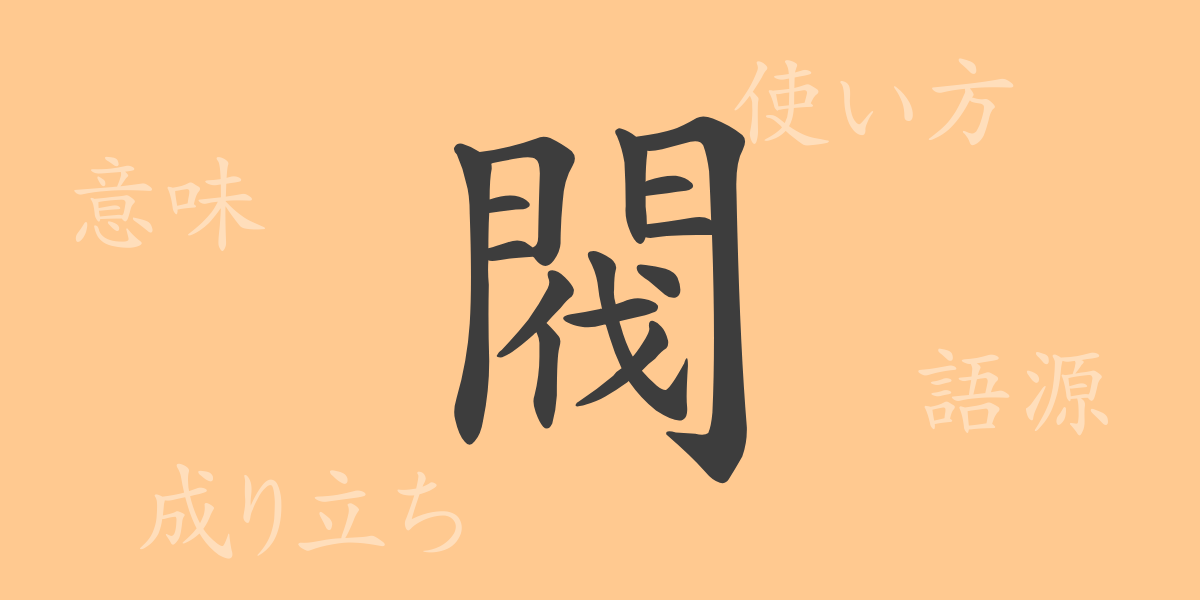The culture of Japanese characters is profound, with each kanji having a long history in its formation. The kanji “閥” (バツ) has played a particularly important role in Japan’s social structure and history. In this article, we delve into the etymology, modern meaning, usage, and related idioms and phrases of “閥”. By reading this, you can deepen your knowledge about “閥” and enhance your understanding of the Japanese language.
Origins of 閥 (バツ)
The kanji “閥” (バツ) dates back to ancient China, originally formed by doubling the kanji for “gate,” which symbolizes power and family. It came to mean the power and influence of people belonging to specific families or groups. Over time, “閥” evolved to denote the status and power within specific groups or forces, a concept that was also transmitted to Japan.
Meaning and Usage of 閥 (バツ)
In contemporary Japanese, “閥” (バツ) generally refers to powerful and influential families or groups within a specific collective. It is commonly used in fields such as politics, economics, and education, often implying a narrow yet strong influence. For example, terms like political factions (政治閥, せいじばつ) and financial conglomerates (財閥, ざいばつ) are frequently encountered. The kanji is also used metaphorically to denote influential people within a particular sphere.
Pronunciation, Stroke Count, and Radical of 閥 (バツ)
Basic information about the kanji “閥” (バツ) is as follows:
- Pronunciation: On-reading is “バツ”, with no specific Kun-reading.
- Stroke Count: Total of 14 strokes.
- Radical: The radical is 門部 (もんがまえ).
Idioms, Phrases, and Proverbs Using 閥 (バツ) and Their Meanings
Idioms and phrases that use “閥” include:
- 財閥 (ざいばつ): A wealthy family or corporate group.
- 学閥 (がくばつ): A strong connection between alumni of a specific school.
- 政治閥 (せいじばつ): A faction within the political world.
- 閥族 (ばつぞく): A group sharing similar status or interests.
These idioms and phrases are frequently used to express power dynamics within Japanese society and organizations.
Summary on 閥 (バツ)
The kanji “閥” (バツ) is used to represent significant concepts in Japanese society and culture. Its history is ancient, and its meaning often points to groups with power and influence. Even in contemporary society, its presence is felt in forms like financial conglomerates and academic factions, making it an indispensable element in understanding Japanese. This article aims to deepen your understanding of “閥”, as well as the social structures and linguistic backgrounds of Japan.

























